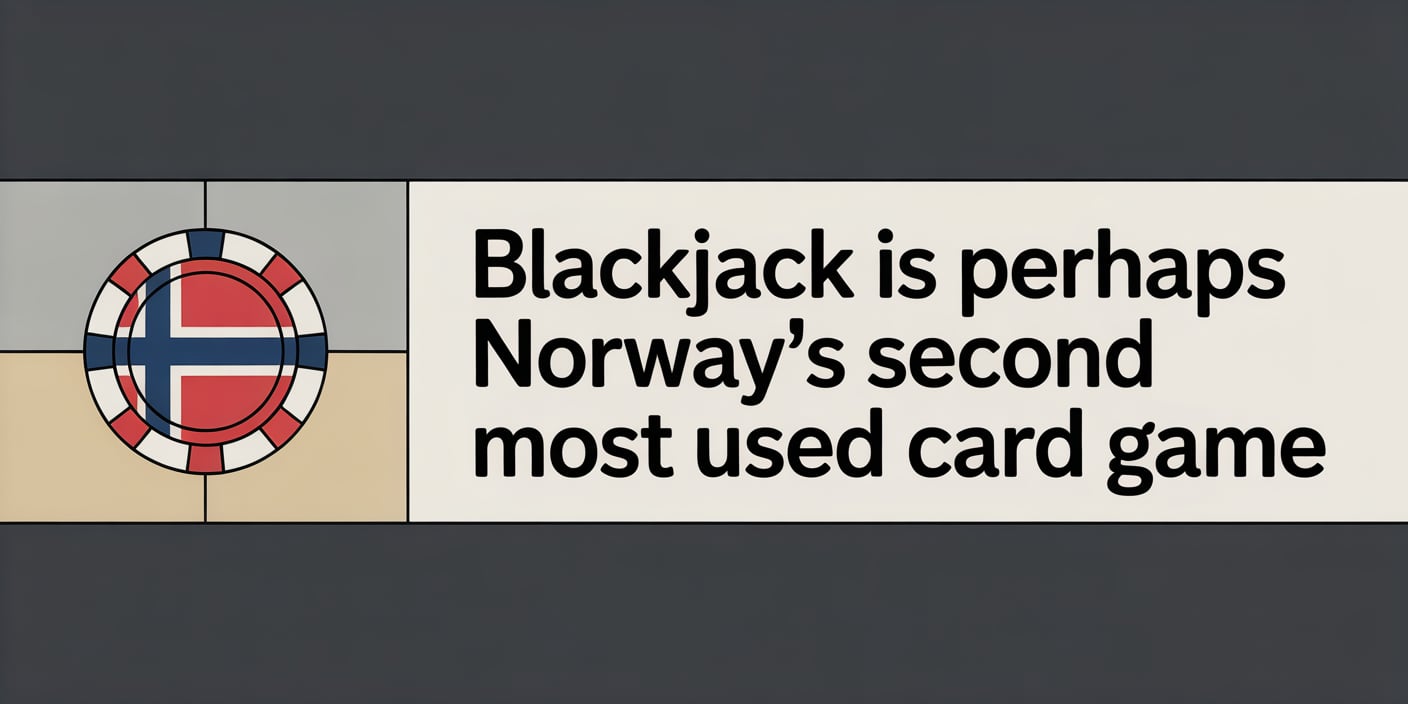Blackjack is Perhaps Norway's Second Most Used Card Game

Blackjack is perhaps Norway's second most used card game, naturally behind poker. The rules are easy to learn, though, learning Blackjack strategy takes a while. After all, there are 340 possible Blackjack hands, and to be as good as you can possibly be, you will want to know what every single hand requires. If you are a beginner, one of the finest things that you can do is practice online casino blackjack free games, which allow you to familiarize yourself with getting things done without spending any money.
Main Goal: Minimizing the House Edge
Once you've learned the rules of Blackjack, your job next is to choose a strategy you can apply. As outlined above, there are 340 possible hands that can occur. In the majority of these hands, the house has a small edge. Your job—regardless of the strategy you choose—is to reduce this house edge as little as possible.
Blackjack Strategy: 4 General Tips
The strategy chart is a bit bulky, and it is not always practical to carry on you. It is thus practical to know some of the most elementary strategic tips in Blackjack.
Let the Dealer Bust
When the dealer's upcard is a 4, a 6, or a 5, it is rarely a good idea for you to draw another card (with the exception of if you have a hand that will bust). These are the cards that give you the greatest chance of seeing the dealer bust. As a secondary plan, this is a good spot at which to double down, putting more money into the pot while the odds are in their disfavor.
Hold Hands of 17 or More
Since the goal is to get as close to 21 as possible without going over, hands that total 17 or more are good. It may be tempting to hit if the dealer's upcard is a favorable card, but statistically speaking, the best thing to do is usually to hold 17 or more.
Split Aces and 8s – But NOT 10s and 6s
Perhaps one of the most crucial rules that most new players learn is to always split Aces and 8s. Two Aces are 12, but separated they are that much more powerful. Two 8s are 16—the worst Blackjack hand—so it is almost always necessary to split them.
Conversely, a pair of 10s constitutes a 20 hand. While only one point shy of Blackjack, you certainly do not want to split with hopes of receiving a Blackjack. Your chances are much improved with a 20-hand value. The same applies to a pair of 6s, which statistically you should not split.
Never Take Insurance
If the dealer's visible card is an Ace, Blackjack permits players to purchase insurance. This is a new wager—half your initial stake—that the dealer receives Blackjack. If they receive one, you are paid 2:1 on your insurance wager.
But in all other situations, you lose this side bet. That is, insurance is a bad bet in the long term and only adds to the house advantage. So, it is always preferable to decline insurance, as alluring.
Card Counting
If you’ve played card games for a while—be it Blackjack, Poker, or another game—you’ve probably heard of card counting. This technique involves keeping track of the remaining cards in the deck.
To counteract this, casinos will use over one deck or other means to render successful card counting useless. It's a more technical skill than an overall system, and it takes years to master. On online casinos, we find it theoretically impossible to employ.
Conclusion
Blackjack is an extremely game of chance, yet there are also skill factors involved. First and foremost among these skills are minimizing the house edge. The ideal strategy will probably be to refer to a Blackjack strategy chart and, additionally, to master the basic rules in depth.
Never forget that Blackjack is a game of luck and that strategy is only there to reduce the house edge. We encourage responsible play and remind you that no strategy can ever guarantee consistent winning.

